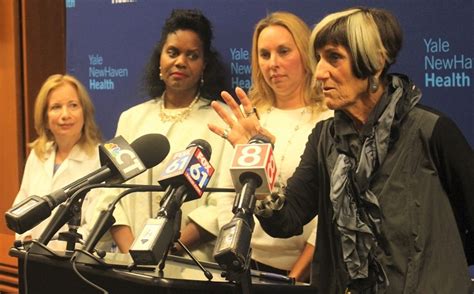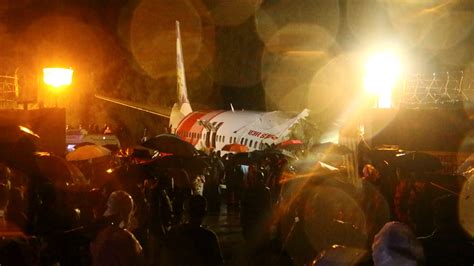
Representative Rosa DeLauro (D-CT) engaged in a fiery exchange with Fox News host Pete Hegseth during a House Appropriations Committee hearing on Wednesday, demanding “details” regarding Hegseth’s past comments about federal spending and the integrity of government data. The contentious back-and-forth highlighted deep partisan divides concerning fiscal responsibility and the role of media personalities in shaping public discourse.
The confrontation occurred as Hegseth, a prominent conservative commentator and co-host of “Fox & Friends Weekend,” testified before the committee about the importance of fiscal oversight and responsible government spending. DeLauro, the ranking member of the committee, seized the opportunity to question Hegseth’s credibility, citing his previous statements and challenging his expertise on budgetary matters.
“I want to get to some details,” DeLauro stated, raising her voice above the ensuing commotion. She pressed Hegseth on specific instances where she believed he had misrepresented facts or promoted misleading information about federal spending. The exchange quickly escalated, with both DeLauro and Hegseth interrupting each other and raising their voices.
DeLauro’s line of questioning centered on Hegseth’s past criticisms of government programs and his skepticism about the accuracy of official data. She accused him of contributing to a climate of distrust in government institutions and undermining efforts to address critical national priorities.
Hegseth defended his comments, arguing that he was simply exercising his right to free speech and holding government accountable. He maintained that his criticisms were based on legitimate concerns about wasteful spending and inefficient programs. He also accused DeLauro of attempting to silence dissenting voices and stifle debate.
The heated exchange underscored the growing polarization of American politics and the increasing scrutiny faced by media figures who express strong opinions on public policy issues. It also raised questions about the role of Congress in holding witnesses accountable and ensuring that testimony is based on accurate information.
The confrontation began when DeLauro brought up Hegseth’s previous statements about the national debt and the federal budget. She specifically challenged his claims that the government was deliberately manipulating data to hide the true extent of its financial obligations.
“Do you believe that the government is intentionally cooking the books?” DeLauro asked.
Hegseth responded, “I believe that there are incentives within the government to present data in a way that is favorable to the administration in power.”
DeLauro pressed further, demanding specific examples of such manipulation. Hegseth cited several instances where he believed the government had used questionable accounting practices or statistical methods to downplay the severity of the national debt.
“These are not just my opinions,” Hegseth insisted. “These are based on publicly available data and expert analysis.”
DeLauro countered that Hegseth’s claims were unsubstantiated and that he was spreading misinformation. She accused him of cherry-picking data and distorting facts to fit his political agenda.
“You are undermining the public’s trust in government institutions,” DeLauro charged. “You are creating a climate of cynicism and distrust.”
Hegseth defended his right to express his opinions and challenge the status quo. He argued that a healthy democracy requires robust debate and that citizens should be encouraged to question government policies.
“I am not trying to undermine anyone’s trust,” Hegseth said. “I am simply trying to hold government accountable.”
The exchange between DeLauro and Hegseth continued for several minutes, with both sides becoming increasingly agitated. Other members of the committee attempted to intervene, but the argument continued until the committee chairman called for a recess.
Following the hearing, both DeLauro and Hegseth issued statements defending their positions. DeLauro reiterated her concerns about the spread of misinformation and the need for responsible government oversight. Hegseth accused DeLauro of engaging in a political witch hunt and attempting to silence dissenting voices.
The confrontation between DeLauro and Hegseth quickly became a major news story, generating widespread debate and commentary. Some observers praised DeLauro for holding Hegseth accountable, while others criticized her for engaging in partisan grandstanding. Some defended Hegseth’s right to express his opinions, while others condemned him for spreading misinformation.
The incident highlighted the deep divisions in American society and the challenges of fostering civil discourse in an increasingly polarized political environment. It also raised important questions about the role of media personalities in shaping public opinion and the responsibility of Congress to ensure that testimony is based on accurate information.
The hearing also touched upon broader issues related to government transparency and accountability. Several committee members expressed concerns about the lack of access to government data and the difficulty of holding agencies accountable for their spending decisions.
“We need to do more to ensure that the public has access to the information they need to hold their government accountable,” said Representative Nita Lowey (D-NY). “We need to make it easier for citizens to track government spending and identify waste and fraud.”
Representative Tom Cole (R-OK) echoed Lowey’s concerns, stating that government transparency is essential for a healthy democracy.
“The more transparent government is, the more accountable it will be,” Cole said. “We need to ensure that citizens have the information they need to make informed decisions about their government.”
The committee members agreed to work together to develop legislation that would improve government transparency and accountability. They also pledged to hold future hearings on these issues and to invite experts from across the political spectrum to testify.
The confrontation between DeLauro and Hegseth served as a reminder of the importance of civil discourse and the need for citizens to engage in informed debate about public policy issues. It also highlighted the challenges of fostering a climate of trust and cooperation in an increasingly polarized political environment.
In addition to the immediate controversy, the exchange also shed light on long-standing debates about the role of media in shaping public discourse and the responsibility of public figures to ensure the accuracy of their statements. Critics have often accused cable news outlets and social media platforms of contributing to the spread of misinformation and the erosion of trust in traditional institutions. Supporters of these platforms argue that they provide valuable outlets for diverse voices and perspectives, and that attempts to regulate or censor them would be a violation of free speech principles.
The debate over the role of media is likely to continue in the years to come, as technology continues to evolve and the lines between news, opinion, and entertainment become increasingly blurred. It is essential for citizens to be critical consumers of information and to seek out diverse sources of news and analysis in order to form their own informed opinions.
The incident also underscored the challenges faced by Congress in holding witnesses accountable for their testimony. While members of Congress have the power to subpoena witnesses and compel them to answer questions, they often lack the resources and expertise to verify the accuracy of the information presented. This can make it difficult to hold witnesses accountable for making false or misleading statements.
Some experts have suggested that Congress should create an independent agency to verify the accuracy of testimony and provide members with unbiased information. Others have argued that Congress should strengthen its own oversight capabilities and invest in staff who have expertise in relevant policy areas.
The need for effective oversight is particularly important in an era of increasing polarization and misinformation. When members of Congress are unable to agree on basic facts, it becomes difficult to address critical national challenges.
The heated exchange also raised questions about the decorum and civility of congressional hearings. While robust debate is essential for a healthy democracy, it is important for members of Congress to treat each other with respect and to avoid personal attacks.
Some observers have argued that the increasing polarization of American politics has led to a decline in civility in Congress. They argue that members of Congress are more likely to engage in personal attacks and to demonize their opponents.
Others argue that the current level of polarization is simply a reflection of the deep divisions in American society. They argue that members of Congress are simply reflecting the views of their constituents.
Regardless of the cause, the decline in civility in Congress is a cause for concern. When members of Congress are unable to work together in a civil manner, it becomes difficult to address critical national challenges.
The confrontation between DeLauro and Hegseth served as a stark reminder of the challenges facing American democracy. In an era of increasing polarization, misinformation, and incivility, it is essential for citizens to be engaged, informed, and willing to work together to address the challenges facing the nation.
Frequently Asked Questions (FAQ)
-
What was the main issue of contention between Representative DeLauro and Pete Hegseth?
- The main issue was DeLauro’s challenge to Hegseth’s credibility and past statements regarding federal spending and government data. She questioned the accuracy of his claims and accused him of spreading misinformation. As DeLauro stated, “I want to get to some details,” referencing what she believed to be Hegseth’s misrepresentation of facts.
-
What specific points did DeLauro challenge Hegseth on during the hearing?
- DeLauro challenged Hegseth on his previous criticisms of government programs, his skepticism about the accuracy of official data, and his claims that the government was deliberately manipulating data to hide the true extent of its financial obligations. She specifically asked, “Do you believe that the government is intentionally cooking the books?”
-
How did Pete Hegseth defend his statements and actions during the exchange?
- Hegseth defended his comments by arguing that he was exercising his right to free speech and holding the government accountable. He maintained that his criticisms were based on legitimate concerns about wasteful spending and inefficient programs. He also accused DeLauro of attempting to silence dissenting voices and stifle debate. “I am not trying to undermine anyone’s trust,” Hegseth said. “I am simply trying to hold government accountable.”
-
What were the broader implications of the confrontation between DeLauro and Hegseth?
- The confrontation highlighted the growing polarization of American politics, the increasing scrutiny faced by media figures who express strong opinions on public policy issues, and questions about the role of Congress in holding witnesses accountable. It also touched upon broader issues related to government transparency and accountability.
-
What were some of the responses to the confrontation between DeLauro and Hegseth?
- The confrontation generated widespread debate and commentary. Some praised DeLauro for holding Hegseth accountable, while others criticized her for engaging in partisan grandstanding. Some defended Hegseth’s right to express his opinions, while others condemned him for spreading misinformation.
In-Depth Analysis, Background Information, and Expanded Context
The confrontation between Representative Rosa DeLauro and Fox News host Pete Hegseth transcends a simple clash of personalities; it serves as a microcosm of the broader political and ideological battles shaping contemporary American society. Understanding the context surrounding this exchange requires delving into the history of political polarization, the evolving role of media, and the ongoing debates about fiscal policy and government accountability.
Historical Context of Political Polarization:
The United States has a long history of political division, but the intensity and nature of polarization have shifted significantly in recent decades. While partisan disagreements have always been a feature of American politics, the rise of cable news, social media, and the increasing ideological sorting of voters have contributed to a more fractured and adversarial political landscape.
The emergence of cable news networks like Fox News, MSNBC, and CNN has created echo chambers where viewers are primarily exposed to information and opinions that reinforce their existing beliefs. This has led to a decline in exposure to diverse perspectives and a greater willingness to demonize political opponents.
Social media platforms have further exacerbated these trends, allowing individuals to curate their own information feeds and connect with like-minded individuals. This can create online communities that are insulated from dissenting viewpoints and susceptible to the spread of misinformation.
The ideological sorting of voters has also contributed to polarization. As voters have become more likely to identify with a specific political party and to hold consistent ideological views, the space for compromise and consensus-building has narrowed. This has made it more difficult for elected officials to find common ground and to address critical national challenges.
The Evolving Role of Media:
The role of media in shaping public discourse has undergone a dramatic transformation in recent decades. The rise of cable news and social media has challenged the dominance of traditional media outlets and has created new opportunities for individuals and organizations to disseminate information and opinions.
Cable news networks have become increasingly partisan, catering to specific ideological audiences and promoting particular political agendas. This has led to a decline in trust in traditional media outlets and a greater reliance on partisan sources of information.
Social media platforms have democratized the flow of information, allowing anyone with an internet connection to share their thoughts and opinions with a global audience. However, this has also created new challenges, as it has become more difficult to distinguish between credible and unreliable sources of information.
The increasing fragmentation of the media landscape has made it more difficult for citizens to stay informed and to engage in informed debate about public policy issues. It has also created new opportunities for misinformation and propaganda to spread.
Debates About Fiscal Policy and Government Accountability:
The confrontation between DeLauro and Hegseth also touches upon long-standing debates about fiscal policy and government accountability. Democrats and Republicans have fundamentally different views about the role of government in the economy and the appropriate level of government spending.
Democrats generally support a larger role for government in addressing social and economic inequality, investing in education and infrastructure, and protecting the environment. They tend to favor higher taxes on corporations and wealthy individuals to pay for these programs.
Republicans generally support a smaller role for government, emphasizing individual responsibility and free markets. They tend to favor lower taxes and reduced government spending, arguing that this will stimulate economic growth and create jobs.
These fundamental differences in philosophy often lead to heated debates about the federal budget, the national debt, and the appropriate level of government regulation.
In addition to these policy disagreements, there are also ongoing debates about government accountability and transparency. Critics often accuse government agencies of being wasteful, inefficient, and unresponsive to the needs of the public. They argue that government agencies should be more transparent and accountable for their spending decisions.
Supporters of government agencies argue that they play a critical role in providing essential services and protecting the public interest. They argue that government agencies should be given the resources they need to carry out their missions effectively.
The confrontation between DeLauro and Hegseth reflects these broader debates about fiscal policy and government accountability. DeLauro accused Hegseth of spreading misinformation about government spending and undermining public trust in government institutions. Hegseth defended his comments by arguing that he was simply holding government accountable and raising legitimate concerns about wasteful spending.
The Role of Media Personalities in Shaping Public Discourse:
Pete Hegseth, as a co-host of “Fox & Friends Weekend,” is a prominent media personality with a significant platform to influence public opinion. His views on fiscal policy, government spending, and other political issues reach millions of viewers, making his statements a subject of scrutiny and debate.
Media personalities like Hegseth play an increasingly important role in shaping public discourse. They often serve as opinion leaders, shaping the views of their audiences on a wide range of issues.
This influence carries both opportunities and responsibilities. On the one hand, media personalities can use their platforms to educate the public, promote civic engagement, and hold government accountable. On the other hand, they can also use their platforms to spread misinformation, promote partisan agendas, and undermine public trust in institutions.
The confrontation between DeLauro and Hegseth raises questions about the responsibility of media personalities to ensure the accuracy of their statements and to avoid spreading misinformation. It also raises questions about the role of Congress in holding media personalities accountable for their testimony before congressional committees.
Challenges Facing American Democracy:
The confrontation between DeLauro and Hegseth is a symptom of the broader challenges facing American democracy. These challenges include:
- Political polarization: The increasing polarization of American politics makes it more difficult for elected officials to find common ground and to address critical national challenges.
- Misinformation: The spread of misinformation online and through partisan media outlets undermines public trust in institutions and makes it more difficult for citizens to make informed decisions.
- Incivility: The decline in civility in public discourse makes it more difficult for citizens to engage in respectful debate about public policy issues.
- Lack of trust: The lack of trust in government, media, and other institutions makes it more difficult to address the challenges facing the nation.
Addressing these challenges will require a concerted effort from citizens, elected officials, and media organizations. Citizens need to be engaged, informed, and willing to work together to address the challenges facing the nation. Elected officials need to be willing to compromise and to find common ground. Media organizations need to be responsible and to avoid spreading misinformation.
Only by addressing these challenges can American democracy thrive in the 21st century. The incident between DeLauro and Hegseth, while contentious, serves as a crucial reminder of the importance of robust debate, informed citizenship, and a commitment to holding power accountable. It underscores the need for continuous vigilance in safeguarding the integrity of public discourse and fostering a more inclusive and informed society. The details demanded by DeLauro ultimately reflect a broader demand for accountability and transparency that is essential for a healthy democracy.

![Browns QB Shakeup: [QB Name] Takes Lead at Minicamp!](https://jelajahtekno.com/wp-content/uploads/2025/06/unnamed-file-609-150x150.jpg)







